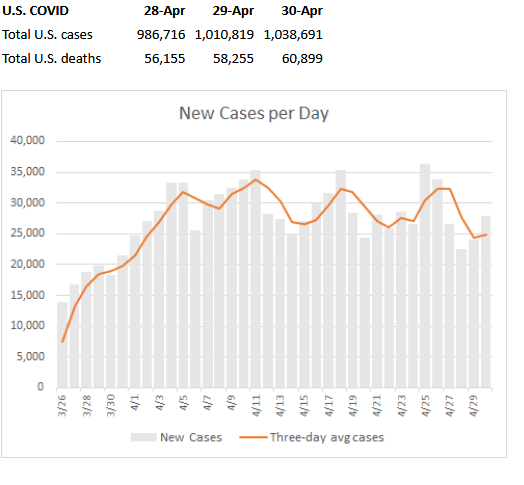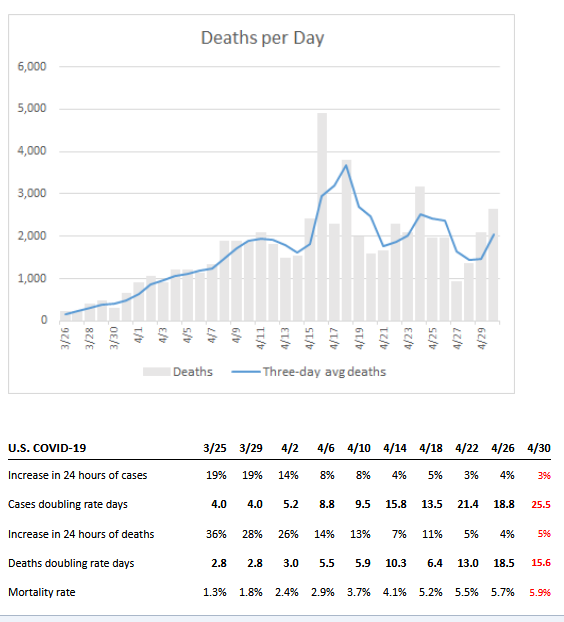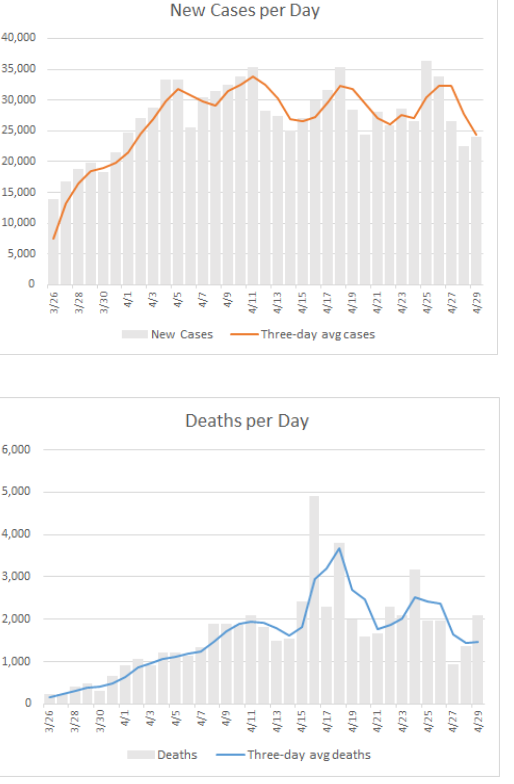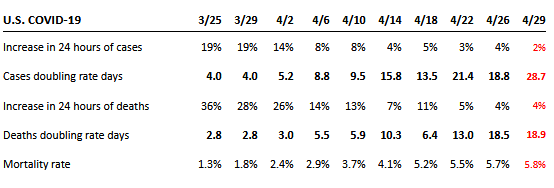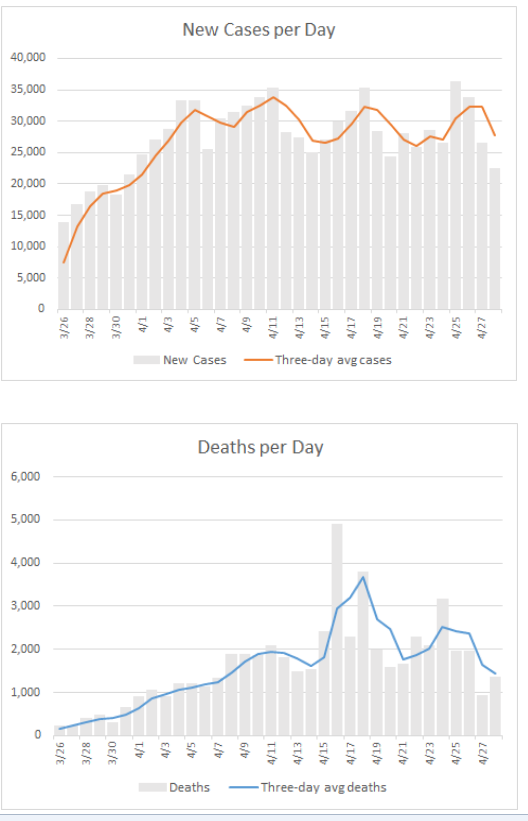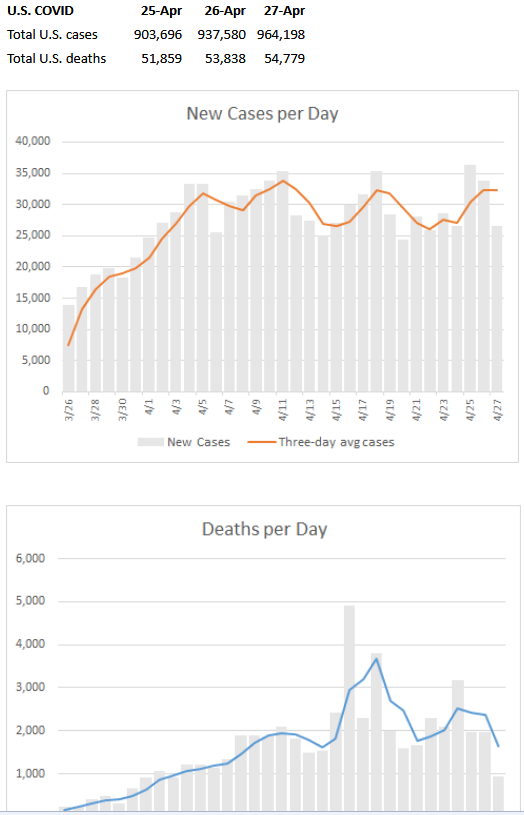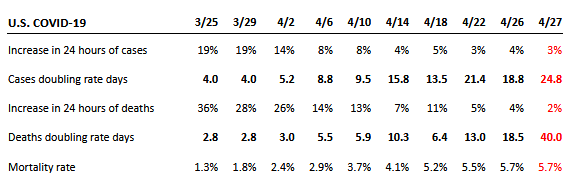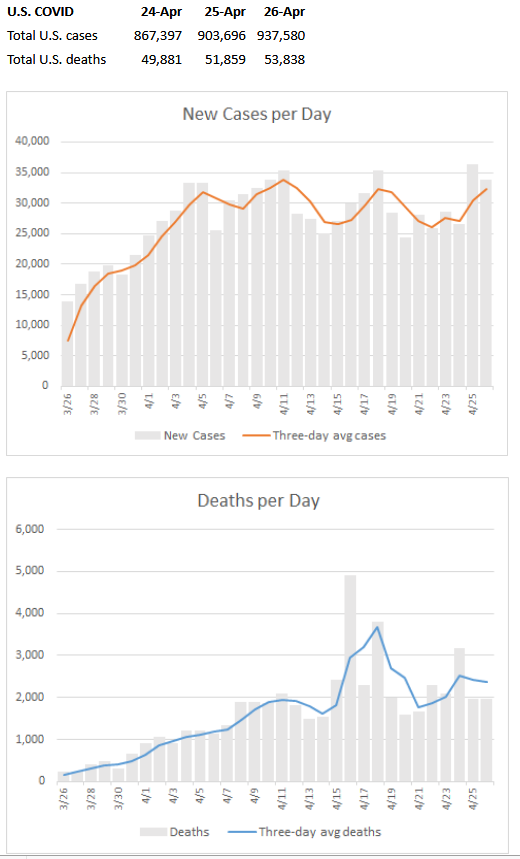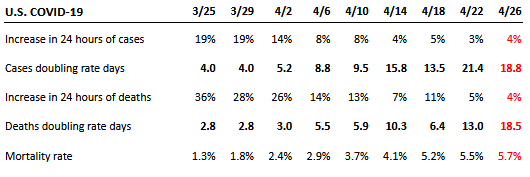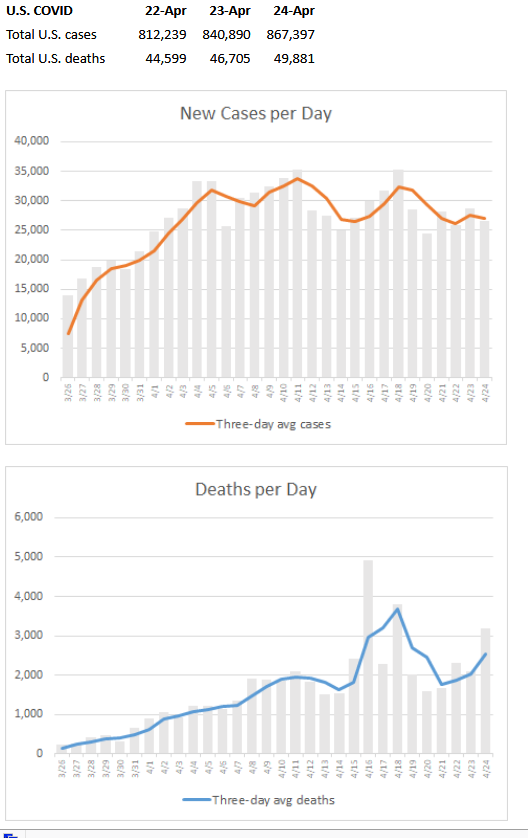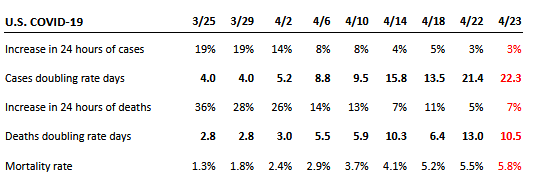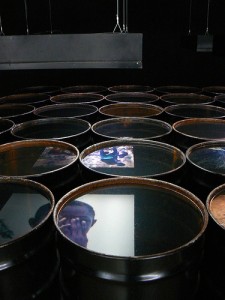
Image by Yuan2003
So, we had a crash of oil prices, where some futures contracts were actually negative, which means that sellers had to pay people to take oil off their hands.
Obviously, oil use has dropped during the Covid-19 crisis, and before that, prices had already decreased in an attempt by non-US producers to reduce prices low enough to crush US shale production.
Oil is a real thing: It takes up storage. Storage space is running out, and it’s not clear when demand will recover, so oil that is to be delivered now-ish is an expense–you have to pay to store it. Thus, the negative prices.
There was a bounce Wednesday, ostensibly due to Trump saying he had ordered the US Navy to blow up Iranian boats if they continued to hassle other ships. (If they do this in the Gulf, and it goes to shooting, Iran will win the initial confrontation. They have a lot of missiles.)
One could equally say this is a dead-dog bounce.
At any rate, even double digit prices are below most people’s production costs for oil, and they are above the price every major government that relies on oil needs to balance their books. This means Saudi Arabia, the four gulf oil states, Iraq, Iran, Russia, and so on. Ironically, Iran, having been under sanctions already, will be in better shape than most of the others.
It is also, obviously, low enough to make US (and Canadian) shale oil production completely uneconomical: generally that needs at least $60/barrel, and much of it needs more.
So we have countries and companies with bleeding treasuries. The US has the ability to print money, presumably it will do so to keep Shale oil around in Zombie form. Countries which cannot print money and have other countries accept it could be in trouble. This depends mostly on how long this goes on. A couple months, even three or four, uncomfortable, but no big deal.
If this crisis bubbles on for a year and a half of shutdowns, partial relaxations, then more shutdowns, we’re into some very dangerous territory. I’m not sure the House of Saud, for example, can survive that scenario (it couldn’t happen to a nicer country, etc.).
The world has been in a very long economic relationship, in which the most important commodity has been oil, and the producers sold it in dollars, so the US and the swing producers all benefited. Obama and Trump more or less broke the deal with the promotion of shale oil, and China has increasingly been insisting on buying oil in Yuan, but the relationship had stumbled on, even though it meant enabling countries that the US has been treating as enemies, like Russia.
Trump wanted to force Europeans to buy more American oil and less Russian oil: This was a major part of his economic plan, such as it was. Trump likes to find a place where he’s more powerful, and push that as hard as possible, and things like sanctions against Russia, Iran, and Venezuela were–and still are–situations in which he has unilateral power that no one else has been entirely able to get around (though China has somewhat). The EU has proven unwilling to stand up to the US in the case of sanctions.
Right now, there’s no particular reason to think this can’t continue. The US can still print infinite dollars, because foreigners will still accept them–even though the US is no longer the most important manufacturing state. So the US can bail out shale oil. Oil producers, who do not have hegemonic currencies, do not have infinite rope.
This changes only the major producers of things the US needs cease to be willing to trade in US dollars. China and the EU could (but I very much doubt will) cut the US’s throat if they ever chose to act together. Perhaps China could even do it alone. The problem, of course, is that there would be a lot of collateral damage to them. US oil is expensive, but the US can produce it. China and the EU need to import it. If they want to make such a change, they have to secure strong supply guarantee from other nations.
This is theoretically possible, but the problem is simple: Any nation that did this would then fall under (even more) US military threat. Bombs are very good at ending oil exports, and neither the US nor China is willing to go to war over this. Perhaps China could move troops and nukes into vulnerable countries, but that would trigger a new cold war, and the Chinese don’t want that–at least not yet. China is working on their own trade area, to compete with the US-led trade area (which the US is abandoning anyway, as it shits on the WTO it created), but it is not ready yet (the Belt and Road Initiative is China’s name for this trade restructuring).
The current collapse of oil prices is unexpected; while a pandemic has always been possible, knowing when it would happen was not. The pandemic has simply revealed the current production’s costs and dynamics. Saudi Arabia has been moving towards vast danger for ages because of its over-reliance on oil; this simply means the consequences may hit sooner. Oi-consuming nations have been maneuvering to reduce their dependence on imported oil in general, and unreliable oil in particular, but they were not yet ready to make any big moves. Almost everyone has been chafing under the petrodollar and under the current world payment system, which the US has abused with its constant sanctions. Despite this, no one has created a viable alternative and been willing to take the hits necessary to move off the dollar and the US/eu payment system (“EU” is in lower case deliberately).
Most oil producing nations, including the US and Canada, are generally bad actors on the international stage: with crimes ranging from moderately bad to invading oil producing nations regularly and sanctioning other ones constantly, or to being the world’s premier supporters of fundamentalist religion and terrorists.
So don’t cry too much for oil producing nations, nor even for their customers, who have enabled them greatly. But beware that the game is changing: Covid-19 has highlighted existing issues and if it continues long enough it could precipitate changes which have been desired by many, but remained unimplemented because people have been unwilling to bear the costs and risks.
The results of the work I do, like this article, are free, but food isn’t, so if you value my work, please DONATE or SUBSCRIBE.
